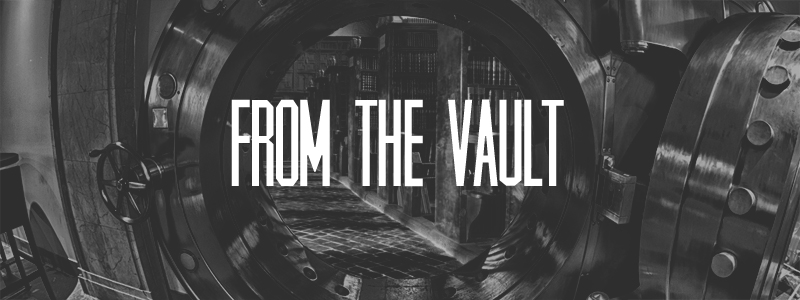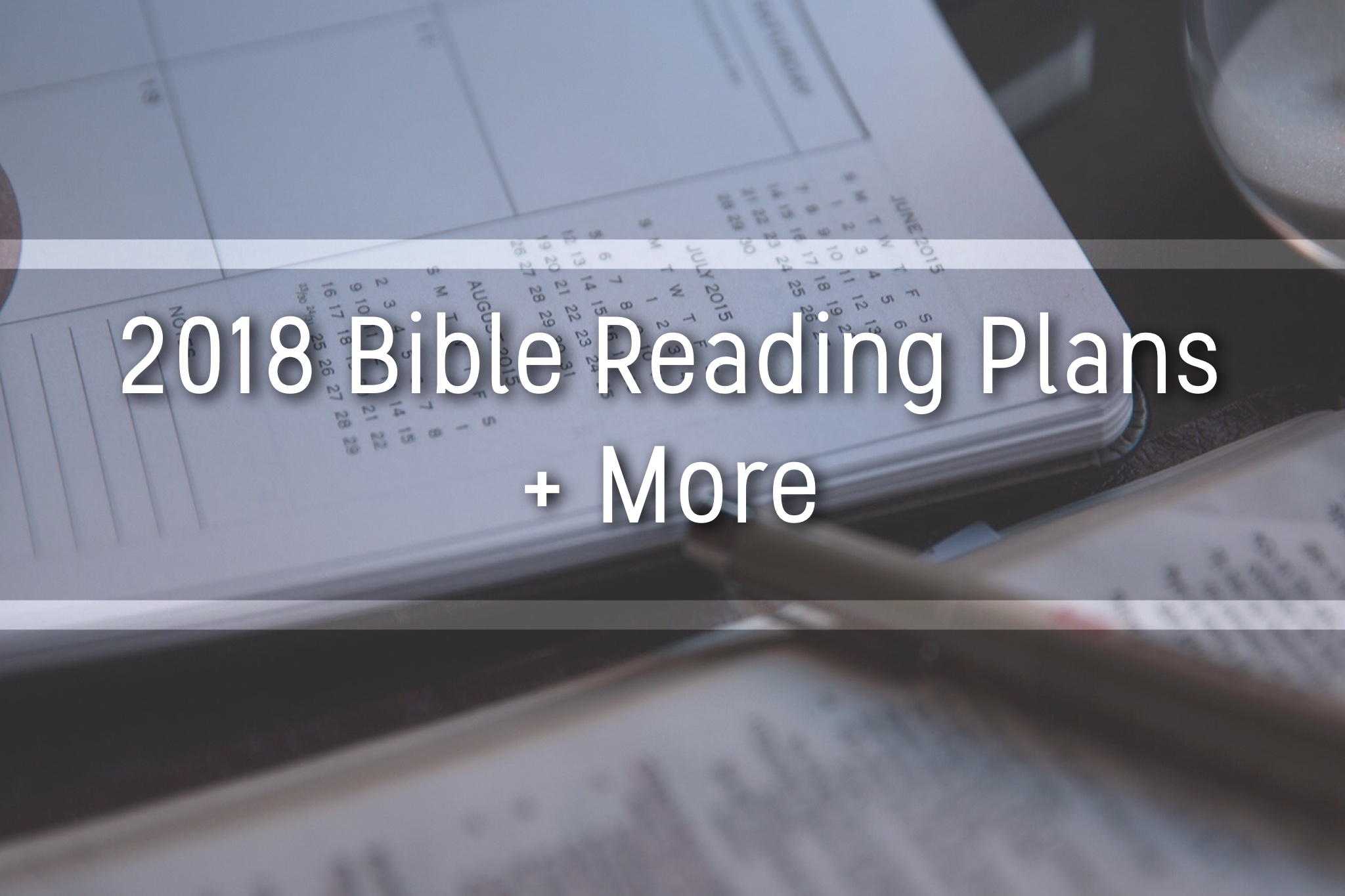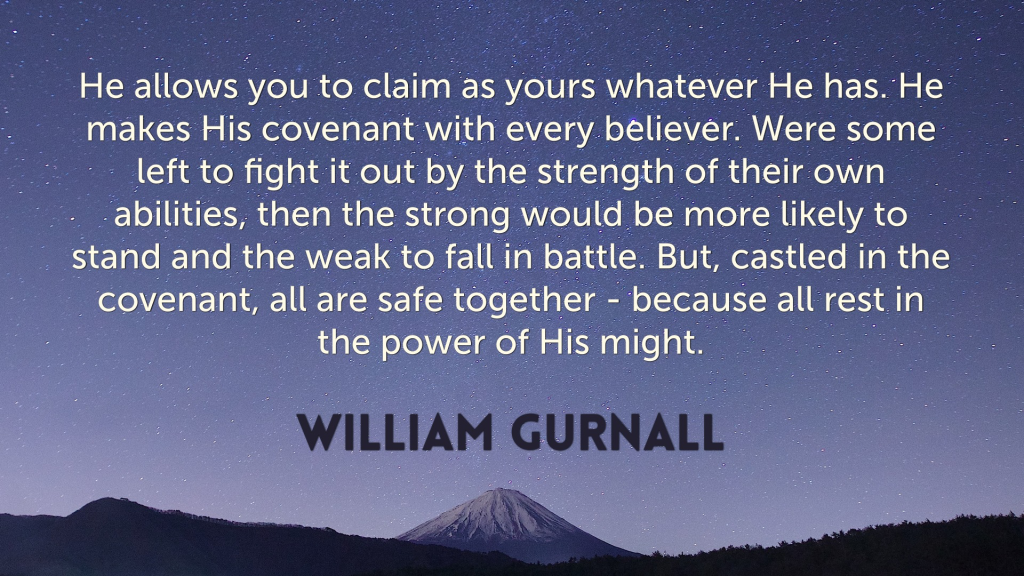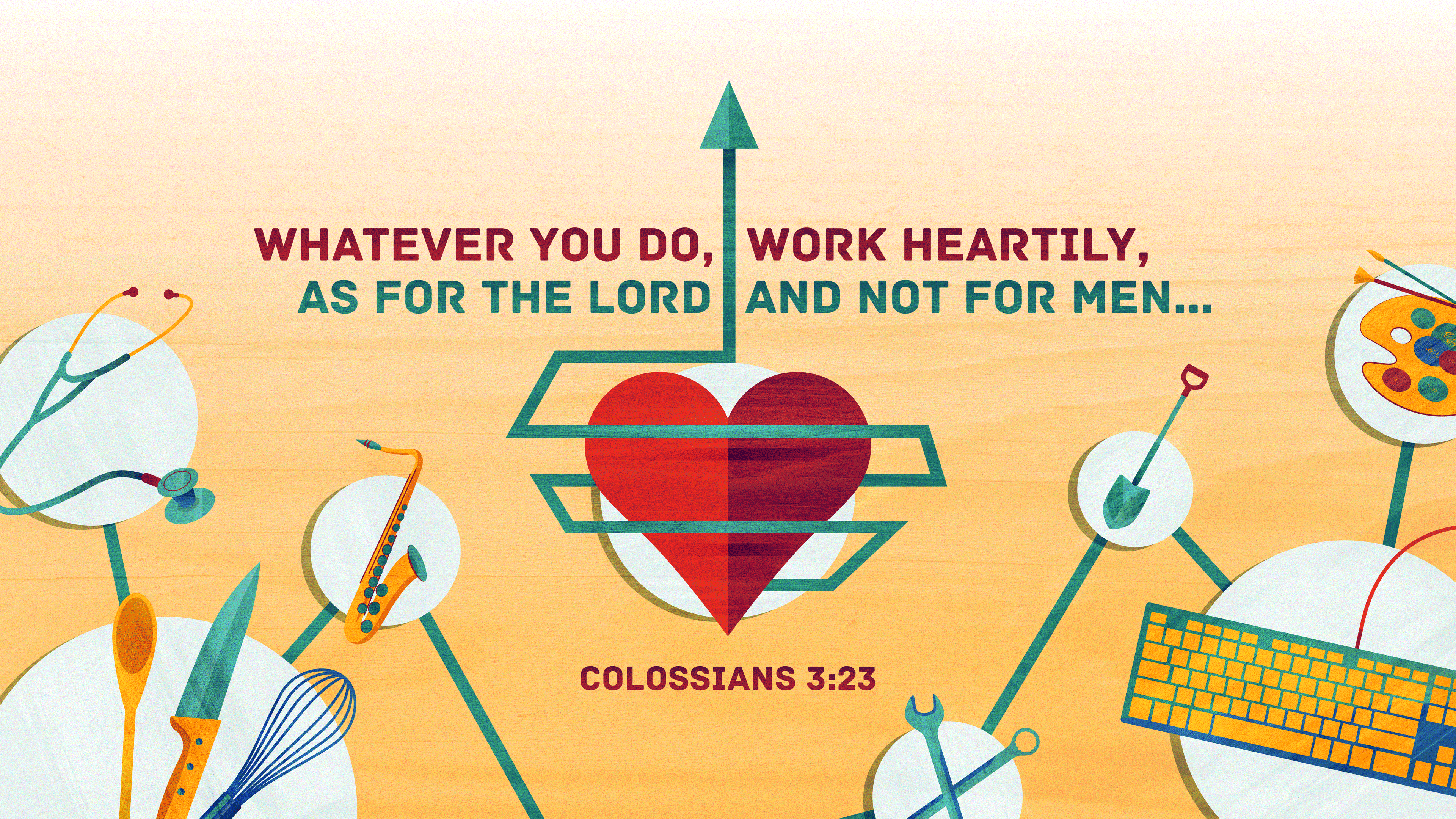Doubt and fear are two responses to situations in life that are common to all of us. One could say that they’re woven into our spiritual DNA as fallen creatures this side of the curse. Maybe you fear and doubt that the Lord will provide for your family, so you overwork yourself to the point of exhaustion. Maybe you doubt the Lord’s goodness to you in the gift of your spouse, so you are constantly seeking to control your marriage. Perhaps struggles with infertility for years have become such a burden that you doubt if God even hears your cries at night. Or possibly you’re experiencing something that we’ve all experienced at some point in our Christian walk – doubt that we have even truly been saved by God.
Can you relate to experiences like these? If you can, then you know that fear and doubt has the capacity to absolutely paralyze us. Rather than living a life confidently in the graces of God, we respond with a life of both apathy and control. Our doubts and fears lead us toward bitterness and resentment, both toward God and other Christians. When life seems to be going so well for everyone else, what can we do when God feels distant and we doubt his promises to us?
Abraham knew what it was like to experience doubt and despair. Both he and his wife Sarah were quite old in age, and had yet to produce any offspring. The author of Hebrews describes Abraham as someone who was as “good as dead (Hebrews 11:12),” both because of his old age but also because infertility was equivalent with death in ancient near eastern culture and society.
But then in Genesis 15 the Lord came and spoke to Abraham, and everything changed – or so we would think. Here is Abraham before the face of the Lord of the universe, and he still doubts the promises of God; not once, not twice – but three times! The first example of this is when God promises Abraham a “great reward.” How does Abraham respond? He casts blame on the Lord that he continues childless and that one of his servants will become his heir (Gen. 15:2). Rather than believing the promise of God, he blames him for his current circumstances. I’m sure you can relate.
But this isn’t the end of Abraham’s struggles with fear and doubt. Once again the Lord makes a promise, this time promising Abraham land for his offspring, but he doubts once again. “How can I know that I will possess it?” he asks (15:8). Are you sensing a pattern here? This time, Abraham asks for proof and evidence to back up the Lord’s promises. And God does just that.
In one of the most remarkable and extraordinary demonstrations of God’s love in all of Scripture, despite Abraham’s doubt God enters into covenant with him (15:12-21). In other words, God makes an unbreakable, intimate, loving promise bound in blood that he will remain true to his word with Abraham.
After this whole ordeal, Abraham’s struggles with fear and doubt are over – right? Wrong. As a perfect example of how we all react to our fears and doubts, Abraham and Sarah try to control their situation rather than trusting the covenant promises of God. They take the promise of offspring into their own hands, and Abraham has a child by Sarah’s servant Haggar (Genesis 16). What began as a seed of doubt fully blossomed into a full-grown tree of disobedience.
At this point, how would you respond to someone like Abraham? If I made a promise to someone twice, with a huge demonstration of my love and loyalty to them, and they still blew me off – I’d be pretty frustrated! But frustration has no place in the covenant love of God. Rather than pouring out justifiable anger on Abraham the Lord renews his covenant with Abraham (Genesis 17), promising that he will be the God of Abraham and his children forever (17:8).
So what does this have to do with us? Well, consider this: Genesis 15-17 are foundational narratives for the rest of redemption history. Abraham is the great patriarch of not only the people of Israel, but of the gentiles also (Romans 4:11-12). He is the great example of faith and works that both Paul (Romans 4:3, Galatians 3:6) and James (James 2:21) refer to. How comforting it is for us to see then that this great example of faith was just as fallen as we are! Even though he was in the presence of God, experiencing the Lord’s covenant love, he was still stricken with doubt and fear that God’s word would be true for him.
What can we take away from all of this? Doubt and fear are things we will all struggle with in the Christian walk. Yet, when we are overcome with doubt and despair, we remember that God has made covenant with us in Christ (Hebrews 9:15). As the Psalmist constantly tells us, God’s covenant love – also known as his steadfast love – endures forever (Psalm 100, 107, 107, 118, etc.). The puritan William Gurnall described God’s covenant love in this way:
God’s covenant engages His almighty power. He puts His own hand and seal to His promise, and like the mountains surrounding Jerusalem it stands, never to be removed. As His name is, so is His nature – a God who keeps covenant forever. He does not parcel Himself out, a few crumbs to one, a crust to another – as one feeds the sparrows. He allows you to claim as yours whatever He has. He makes His covenant with every believer. Were some left to fight it out by the strength of their own abilities, then the strong would be more likely to stand and the weak to fall in battle. But, castled in the covenant, all are safe together – because all rest in the power of His might.
So when we are overcome with doubt and fear, we take heart in the fact that the strength of our faith never comes from within ourselves, but it comes from the object of our faith: the one who has given us his Son as the utmost expression of this covenant love. I think this is why Christ was able to say that faith the size of a mustard seed can move mountains (Matthew 17:20), because the power of our faith always comes from him. Even the smallest faith is saturated with the covenant love of the Almighty.
Friend, where are you doubting God’s covenant love in your life? How could trust in his promises allow you to relinquish control and give you confidence to live under His loving Lordship? Why not allow today to be the day where your fears and doubts fade, and are instead replaced by confidence in God’s steadfast love?
For the Lord is good;
his steadfast love endures forever,
and his faithfulness to all generations. – Psalm 100:5
 The following is taken from The Saints’ Happiness (pp. 18-21), written by Puritan author Jeremiah Burroughes.
The following is taken from The Saints’ Happiness (pp. 18-21), written by Puritan author Jeremiah Burroughes.
What are the marks of the poor in spirit?
- They are humble at the sight of their graces. Carnal hearts are puffed up, but a gracious heart sees enough in its graces to make it humble.
- The poor in spirit think it a small thing if others receive more respect and honor. They have no cause for envy or to be troubled. It is rather a wonder what they do have. They trust God’s providence.
- They admire every little good they receive, considering it much. They wonder at every affliction that it is not more, and are thankful for every mercy. The world is troubled that their afflictions are great and their mercies so little. The poor in spirit do not murmur and repine, but wonder that God lays his hand so tenderly upon them as he does.
- The poor in spirit are praying men. They cannot live without prayer, and must go day after day to seek God.
- They are admirers and great extollers of free grace. Whatever they have, they look upon as undeserved.
- The poor in spirit are emptied of self. Whatever they have in themselves, or whatever they do, they do not rest upon it for their eternal good; they are sensible of their own poverty.
- They are willing for God to choose their condition. Their comforts, abilities, worth, and wages can be safely left wholly to God: “Here I am, let God do with me as he wills. I lie at his mercy.”
- They do not look upon the rich and honorable as the most excellent, but those who have the highest grace; “O how happy would I be if I could so walk with God and overcome my corruptions!” This is a poverty of spirit indeed.
- The poor in spirit are willing to wait. Though God does not come according to their desires, they are content to wait upon God.
- They are struck with reverence for the greatness of God and the authority of his Word, and they yield their spirit to it.
Although I wasn’t able to watch last night’s Democratic Debate live, I was able to catch up on all the clips, highlights and most tweetable moments from the debate. As I was deciphering all of the #damnEmails tweets and poor-taste comments about someone’s Labrador for real information, I couldn’t help but feel a certain conflict in me. For while there were some things I disagreed with that the political candidates were saying, there were also many issues that I did agree with. This reminded me of one of my favorite quotes from New York pastor Tim Keller:
The new, fast-spreading multi-ethnic orthodox Christianity in the cities is much more concerned about the poor and social justice than Republicans have been, and at the same time much more concerned about upholding classic Christian moral and sexual ethics than Democrats have been.
It seems to me that there is a revolution happening in young Christian circles, of which I consider myself a part. For many generations, there has been a culture in our churches where you were pitched one of two choices: either you’re a Christian fundamentalist who always voted on the Right; or you were a progressive Christian who always voted on the Left. During the last election, many of my conservative Christian friends told me I wasn’t really a Christian if I voted for a Democrat; my more liberal Christian friends said I couldn’t truly obey the commands of Jesus if I voted Republican. In the end, it’s the same accusation coming from two opposite ends of the spectrum. This has given way to the impression in our society that we are mindless, one-issue voters. I can’t help but wonder if there isn’t a better way.
When I talk with Christian millenials, there is a general attitude of being fed up with today’s political system. Keller hits the nail on the head when he describes the conflict in many of today’s young Christians. For too long individual churches and whole denominations have sponsored political functions and endorsed candidates by bringing them to speak at church gatherings. We’ve witnessed the results of what has often been blind, mindless, and careless adherence to political systems and ideologies. We struggle to be squeezed into any one political mold or model. Conservative and liberal are quickly becoming adjectives that are far too simplistic. Whereas political figures used to be able to rally entire populations around their agenda, millennial Christians are quickly realizing that the loudest voices in public discourse rarely speak for us.
I want to avoid the accusation of chronological snobbery, but isn’t this the way it should be? Can kingdom-minded people be squeezed into the political categories of men? Rather than being the most one-sided voices in political discourse, shouldn’t we be the most thoughtful? If we take the charge to steward the full council and wisdom of God seriously, then it is our responsibility to bring order, thoughtfulness, reason, and genuine empathy to the political table.
This means that it is going to be impossible for Christians to be blind, strict adherents to any one political system or party. We should not be a people who make character attacks, cheap shots on social media, or treat issues lightly. We should be a people who seriously think through each and every issue before coming to an informed decision. We should wrestle the convictions of our twisted and sinful hearts with the truths of all of Scripture – not just the easy verses. We should genuinely desire to listen to those we disagree with and understand them, seeking to interact with the best of their arguments – not the weakest. Christian leaders should flee from any action that will teach their people to be one-issue voters. Perhaps most importantly, we should understand that each decision impacts and changes the lives of real people – not just numbers in a news column.
Perhaps I’m too idealistic, but I long to see a thoughtful and educated culture amongst our churches. I long for a day when we realize that casting our vote for any one candidate means we will be giving up good qualities and positions from other candidates. I desire a time where I don’t sign on to social media and see Christians posting cheap shot memes, jokes, articles and comments about political officers rather than taking up the command to earnestly pray for them.
One of my favorite authors and commentators on this subject is Professor Carl Trueman from Westminster Theological Seminary. In his book Republocrat, he closes with the following argument which summarizes my thoughts on this issue far better than I could. He writes:
Christians are to be good citizens, to take their civic responsibilities seriously, and to respect the civil magistrates appointed over us. We also need to acknowledge that the world is a lot more complicated than the pundits of Fox News (or MSNBC) tell us…. Christian politics, so often associated now with loudmouthed aggression, needs rather to be an example of thoughtful, informed engagement with the issues and appropriate involvement with the democratic process. And that requires a culture change. We need to read and watch more widely, be as critical of our own favored pundits and narratives as we are of those cherished by our opponents, and seek to be good stewards of the world and of the opportunities therein that God has given us.
It is my belief that the identification of Christianity, in its practical essence, with very conservative politics will, if left unchallenged and unchecked, drive away a generation of people who are concerned for the poor, for the environment, for foreign-policy issues…. We need to… [realize] the limits of politics and the legitimacy of Christians, disagreeing on a host of actual policies, and [earn] a reputation for thoughtful, informed, and measured political involvement. A good reputation with outsiders is, after all, a basic New Testament requirement of church leadership, and that general principle should surely shape the attitude of all Christians in whatever sphere they find themselves. Indeed, I look forward to the day when intelligence and civility, not tiresome cliches, character assassinations, and Manichean noise, are the hallmarks of Christians as they engage the political process. (pg. 108-110)
As we head into the next political cycle, this is the culture change and climate I’ll be praying for. Will you join me?
This past Sunday, I preached a sermon on what it means to live in light of being made a new creation in Christ. One of my targeted applications was how we must live in light of being made a new creation in our workplaces. This was my assertion:
So when we go through the transformation of the new creation, we must then begin to allow what has taken place in our heart to transform how we think and how we view our lives. We need to start thinking from the perspective of someone who has been changed at their very core…
…The reality is most of us in here have vocations – whether it’s as a student, a full-time job in the marketplace, or as full-time stay at home parents – that take up the majority of our waking hours each week. We need to learn how to intentionally engage the subject of work and vocation with one another so the reality of the new creation can change the way we work.
The point is this. When we as Christians first confess the name of Christ, we are brought into union with him. This means that our hearts and our minds change as they begin to desire the glory of God rather than our own selfish desires. Our affections and thoughts are conformed to the image of Christ (Romans 8:29). This heart change will then overflow as it changes what we do and why we do it. I don’t think any Christian would deny these statements. However, when it comes to our vocations, I do not think many of us understand what this truly means.
There is a common message that has spread amongst evangelicalism which says something like this: your role as a Christian in the workplace is to be someone who preaches the gospel and shares it with co-workers. This is a false. It is false not because this statement is untrue, but because it is far too minimalistic. A half-truth is still not true.
Our role in our workplaces is to work as if unto the Lord and reflect his glory ( 1 Corinthians 10:31, Ephesians 6:7, Colossians 3:17, 23-24). One aspect of this is that we are people who carry the hope of the gospel, but this is just one small piece. When we are made a new creation by the redeeming work of Christ (2 Corinthians 5:17, Galatians 6:15), everything we do can and must begin to reflect the image of God in us. The reason we get out of bed in the morning, why we even get in the car to go to work, the motivations behind the tasks and vocations we have been given – this all must change.
So what does that look like practically? Well, here are a few examples:
- Engineers and software developers who, through a small act of creating their assigned projects, reflect the glory of God who is the creator of all things, and see to it that when their project is completed, it is “good” (Genesis 1).
- Nurses, physical therapists and doctors who are instruments in the hand of God as they relieve the effects of the curse from the fall (death and decay), as they look forward to the day with hope when there will be no more sorrow, sickness or affliction (Revelation 21:4).
- Teachers who can be a blessing to the nations as they raise up young men and women to go out into society (Genesis 12:2-3).
- People in finance who work with integrity as they bring order to chaos and “seek the welfare of the city where I have sent you into exile” (Genesis 1:1-31, Jeremiah 29:7).
- Workers in food and service industries who emulate the selflessness and service of Christ, even to those who reject them (Isaiah 53:3, Mark 10:45).
These are just a few ideas to challenge you in the way you see your vocations. Are your vocations sub-spiritual endeavors that merely make room for the “true” spiritual work of sharing the gospel? Or are they the means by which God is showing you grace by redeeming you and allowing you to reflect his attributes, as he makes you a beautiful new creation? Do you understand the difference?
I can see where the faulty theology of vocation comes from in our evangelical subculture today. There are still many strands of theology circulating today which find their origin in revivalist circles, which taught that our biggest priority is to save as many souls as fast as possible. I don’t want to downplay the importance of souls being saved, but this is an anemic gospel. It is not only far too minimalistic, but it is also not the charge Jesus gave us before he ascended to heaven in glory (Matthew 28:18-20). To tell people that the only purpose of their job is to share the gospel – without teaching them what it means to reflect the glory of God through their every day efforts and vocations – is to emphasize making converts, but not disciples. This is not only bad teaching, but it is a sure sign of disobedience.








![Colossians 3:23 [widescreen]](http://goingtodamasc.us/wp-content/uploads/2015/09/Colossians-323-widescreen-1024x576.png)